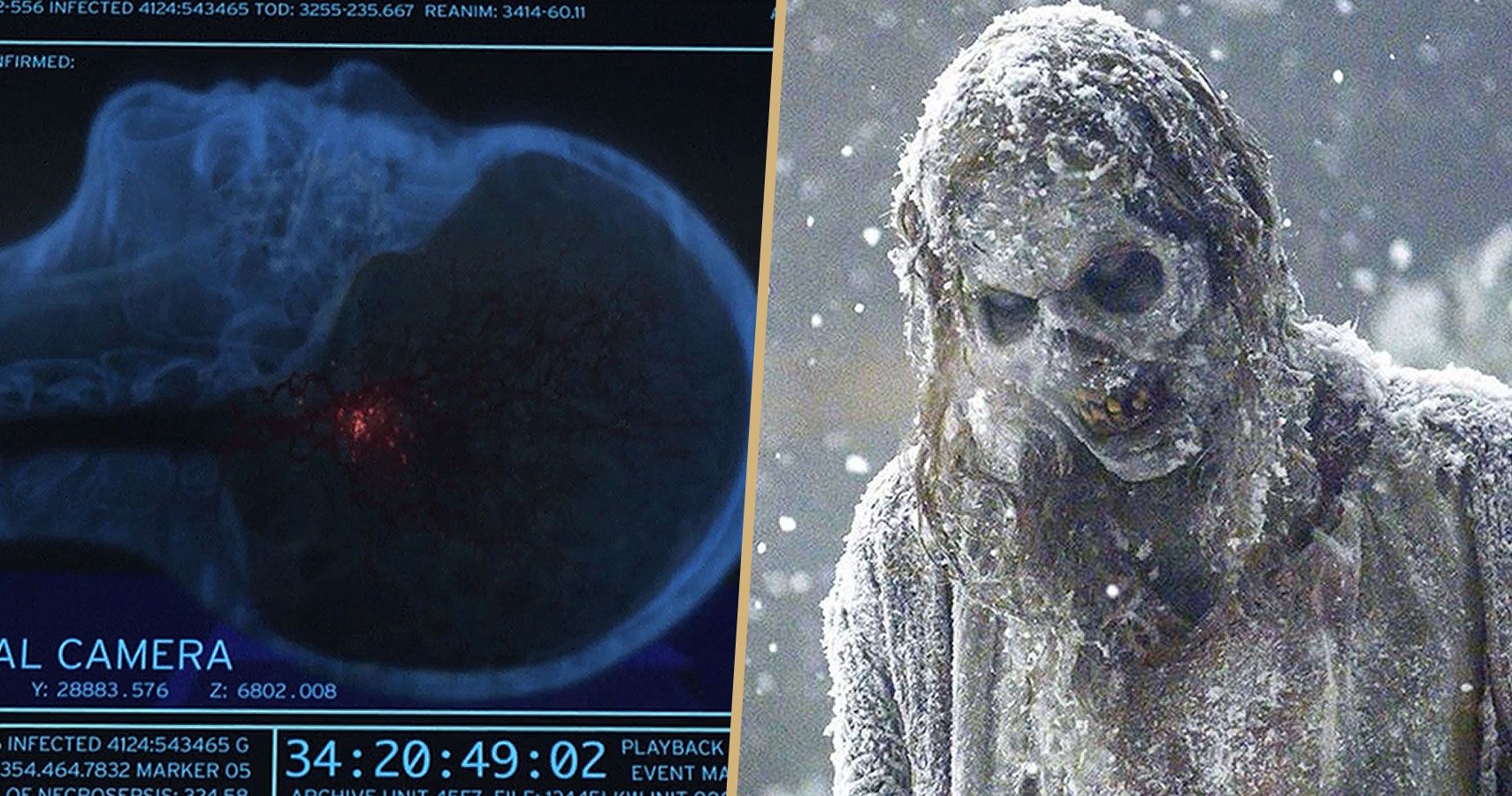
The Walking Dead has made zombies a full staple of pop culture that extends out far past its initial horror movie fanbase. These ever-popular monsters continue to fascinate audiences with even the mildest morbid interest in watching human corpses rise up to devour the living. They’re not only scary, they’re us.
Naturally, the real-world plausibility of Walking Dead zombies should be taken with a grain of salt, but that still doesn’t explain a number of glaring things that don’t make sense. Even for a science fiction horror show, there are some leaps of faith that are impossible to make. Here’s just a few.
Decay Rate
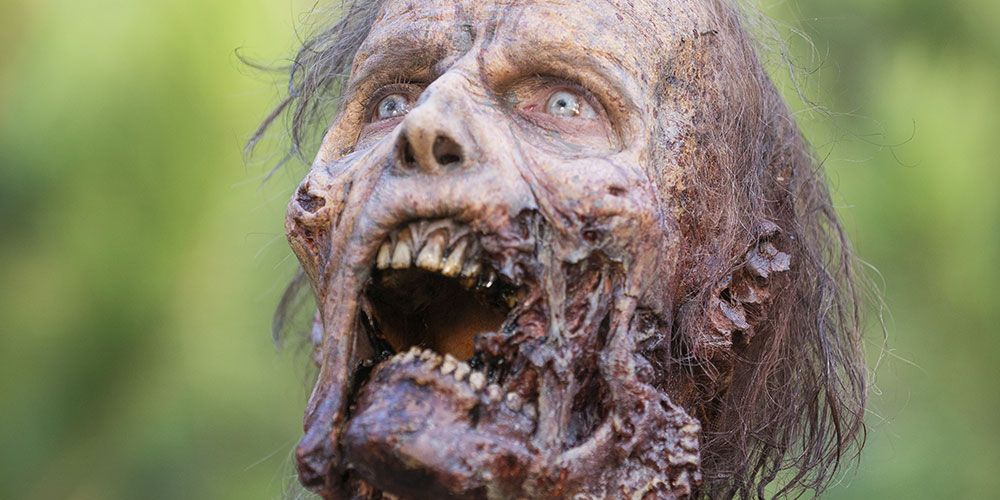
There are a multitude of zombie types present on The Walking Dead, and not all of them are equal. Some are fresh kills that have reanimated with most of their bodies intact, while others have been dead for years and yet still keep ticking. What makes no sense about all of this is the overall decay rate for the zombie hordes.
A normal human body goes through stages of decay that are fairly consistent within general conditions. Only the most sterile and particular of environments can stave off decomposition. Otherwise, a corpse won’t manage to hold itself together for more than a few months before it’s reduced largely to a skeleton.
Seasonal Effects
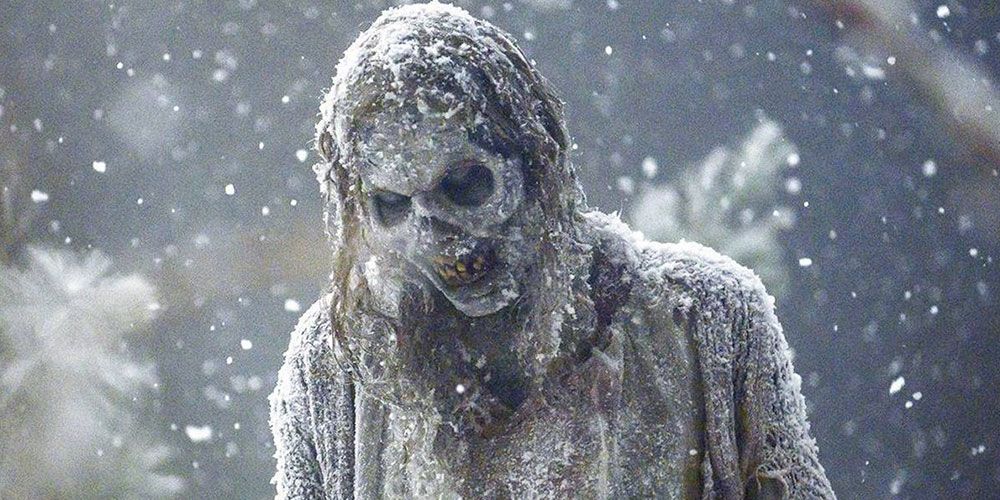
The Walking Dead has touched on the change of seasons, most notably when the survivors fought through a winter blizzard in season 9. The resulting zombies were affected by the sudden storm, but this begs the question as to how they manage to withstand harsh elements year over year without issue.
Frostbite, ice buildup and other effects should have a detrimental impact on a walking corpse despite its undead status. Yet for some reason, the zombie hordes keep thawing out to go after their next meal when the weather warms up.
Their Mobility
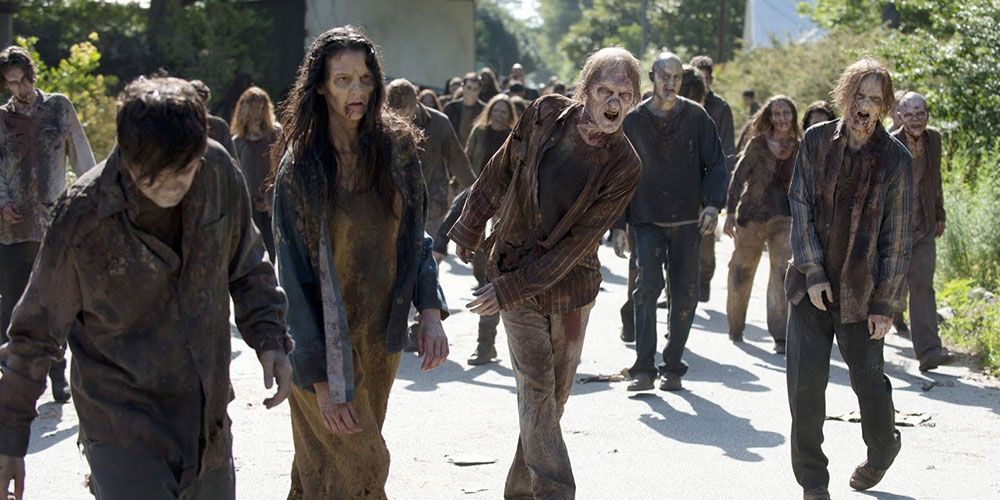
Walking Dead zombies are of the George Romero type, meaning they shamble along slowly and don’t really have much in the way of speed. This doesn’t answer the question as to how the walkers are able to move at all, much less pursue their prey relentlessly for miles on end.
Theoretically, all that’s needed to walk is neuronal circuits which are present in the spinal cord and brain, but this doesn’t explain how locomotion is possible without the aid of a fully functional circulatory system. The undead have no such system – therefore the ability to walk is something of a mystery.
Their Numbers
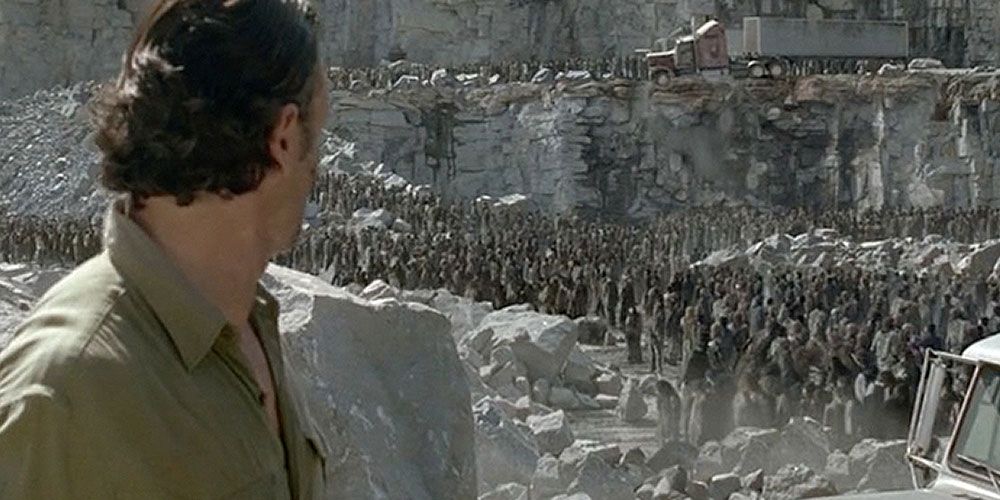
Zombies group together in herds largely out of robotic instinct and habit, since they are all attracted by the same basic criteria – distractions and warm flesh. Their numbers are harder to explain, however. While it stands to reason that a packed city would have legions of undead patrolling the streets, extremely large hordes have been traversing the post-apocalyptic rural areas of The Walking Dead as well.
Eventually, the number of undead would start to drop over time, since hordes would reach a particularly lethal size before completely devouring their human prey. Those who manage to sustain a bite usually get away before dying and reanimating later on, but sooner or later the pendulum would shift, and there’d be fewer walkers because of it.
Their Hearing
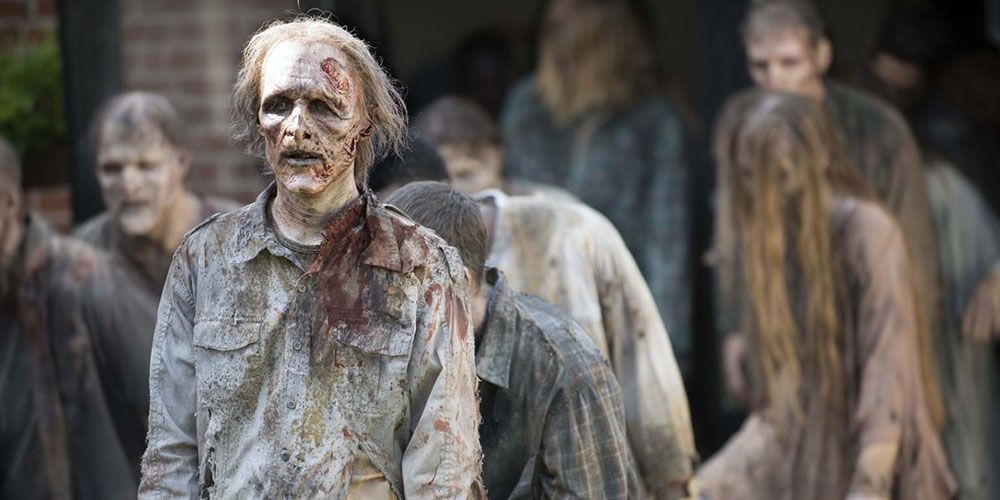
Zombies are attracted by several things, most notably distracting sounds which are enough to get their attention and divert them off their otherwise aimless course. Part of this might have to do with the viral outbreak targeting the existing brain tissue and reanimating it to perform basic functions.
It’s hard to imagine hearing being among them, however. Since the virus reduces the zombie to a mindless eating machine, it’s odd to think that it has use of its ears and can still hear well. Even if it were possible, it seems improbable that a zombie would put two and two together from sounds versus images.
What About The Bugs?
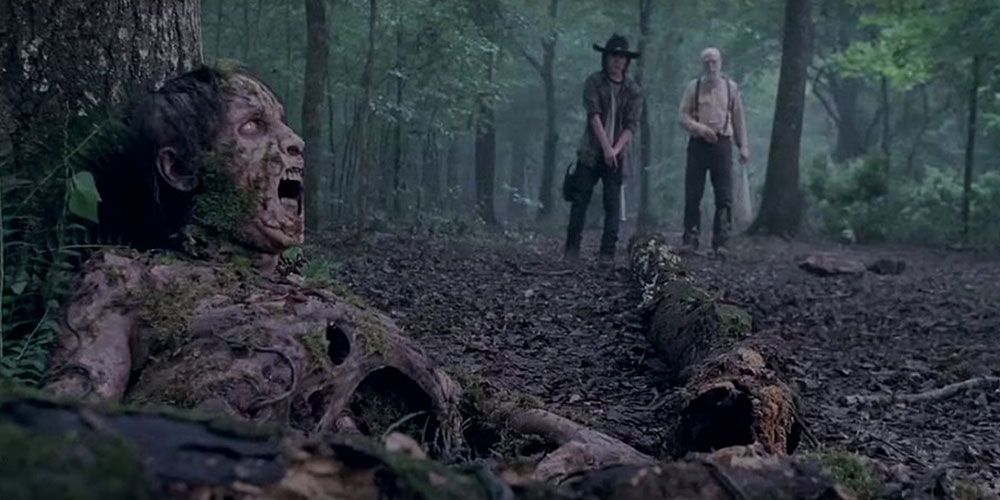
As far as The Walking Dead has revealed, the virus responsible for the zombie outbreak reanimates the brain and gives it enough juice to turn a corpse into a bipedal nibble machine. Just as the rate of decay makes little sense, so too does the lack of bugs responsible for breaking down the body after death.
Typically, certain insects such as maggots will make short work of consumable materials fairly quickly before bigger and beefier bugs show up to take care of the tougher stuff. It makes no sense to see zombie corpses effectively frozen in time without scores of creepy crawlers devouring them as nature intended.
No Rigor Mortis
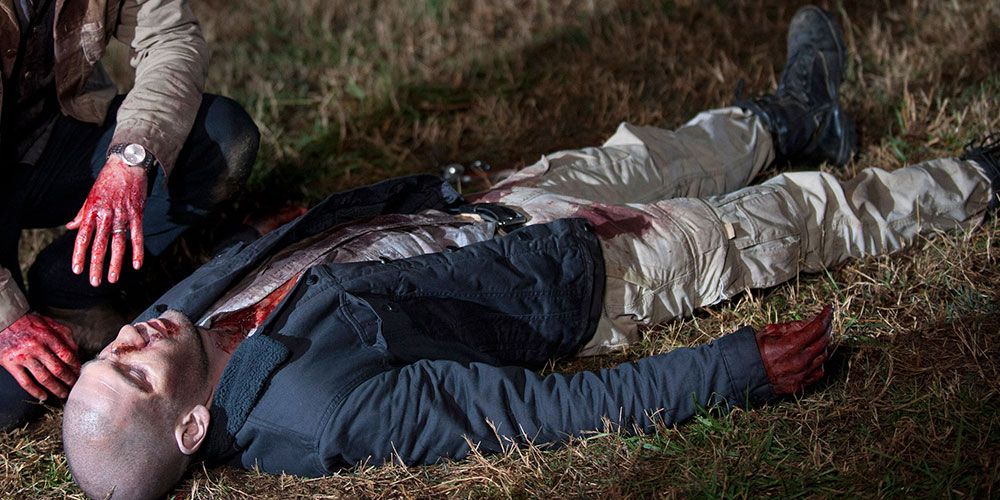
Rigor mortis occurs shortly after death and can last an average of 72 hours, at which point the condition recedes. Such a phenomenon has yet to be witnessed on The Walking Dead. Freshly killed humans reanimate just when rigor is supposed to set in, which makes no sense from a biological standpoint.
Brain activity doesn’t prevent rigor mortis, as the condition is dependent on calcium ions in the membranes of muscle cells. Therefore, one should see a bunch of zombies locked up with nowhere to go, rather than shuffling around in search of a snack.
No Eye Decomposition
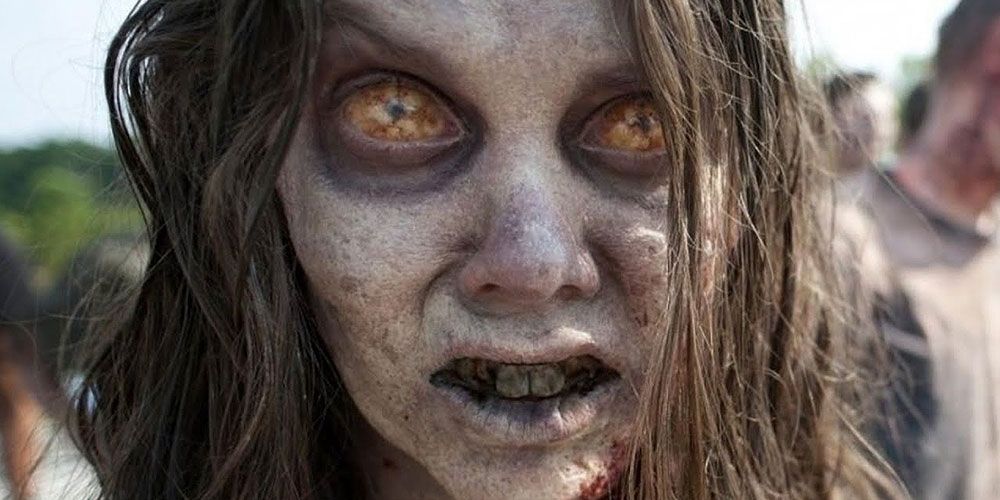
Many zombies in The Walking Dead look like they’ve been around legitimately for years, but even the recent dead should be susceptible to decomposition of the eyes. Yet, the most audiences see are milky and hazy eyes commonly associated with post-death conditions. The question is, why does it stop there?
Eyes depend largely on oxygen, and since they’re a soft tissue, they are prone to dry out and decompose rather quickly. Even the cornea may only be used for transplant purposes up to twenty or so hours after death. It makes no sense that zombies are still walking around with eyes in their skulls, much less seeing with any degree of clarity.
Sense Of Smell
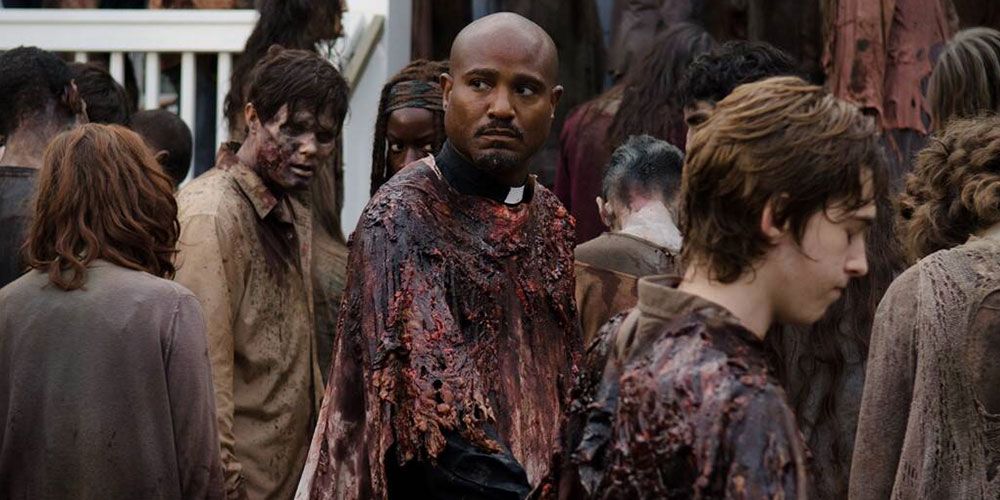
It seems as if the zombies of The Walking Dead have possession of at least their primary senses, but it’s not known why. Several episodes have shown survivors dousing themselves in the blood and guts of the undead in order to mask their scent so they can walk freely among them. This would suggest that sense of smell is the primary tool the zombies use to identify prey.
This calls into question the issue of distance, however. If a zombie spots a potential target from 200 yards out, how does it know if it’s a human or another walker? When one stops to think about how senses are used by zombies to identify prey, it all becomes extremely confusing.
The Brain
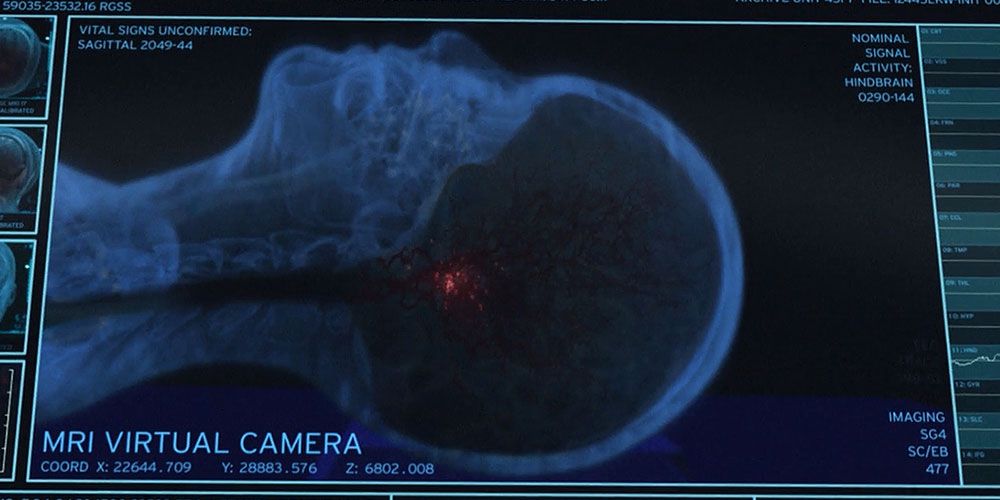
Zombie brains are perhaps the most scientifically sound part of their biology in The Walking Dead, but the premise isn’t perfect. The virus responsible for zombification reanimates the brain and keeps it going just enough to perform the most basic of biological functions such as walking and eating. Theoretically, if neuronal function is sustained, the brain should not decompose.
However, brains cannot survive without a circulatory system to infuse glucose and oxygen into the blood, which in turn produce the kind of energy the brain needs to function and survive. Starved of this, the brain cannot maintain itself, which makes the premise of The Walking Dead (thankfully) implausible.





